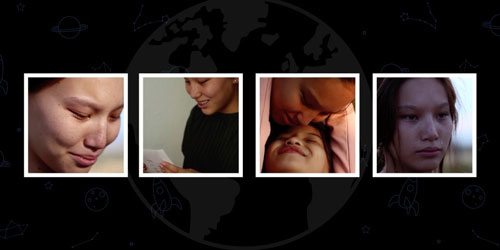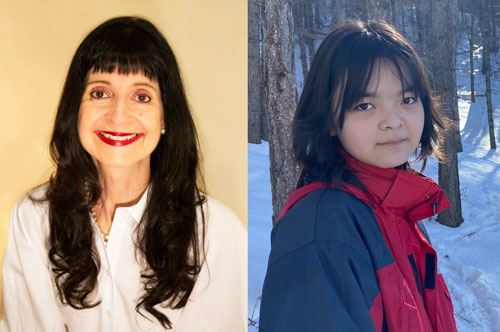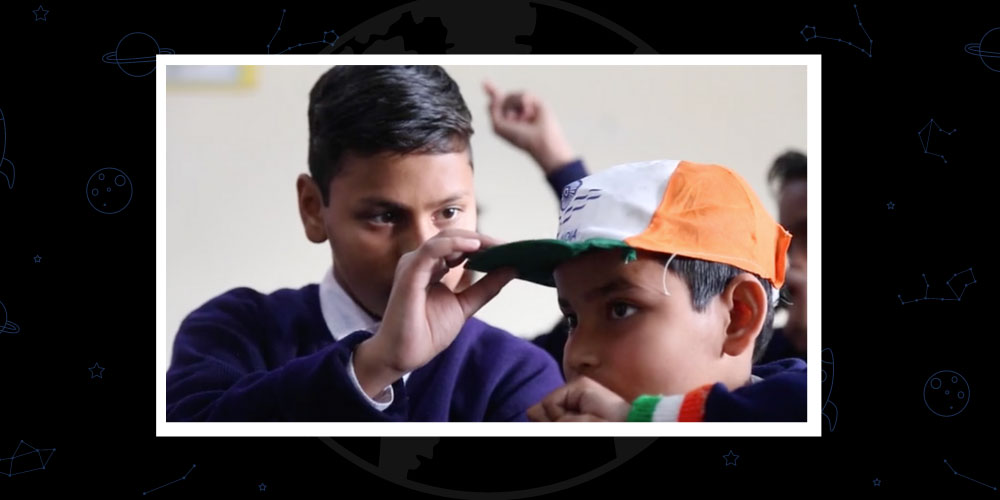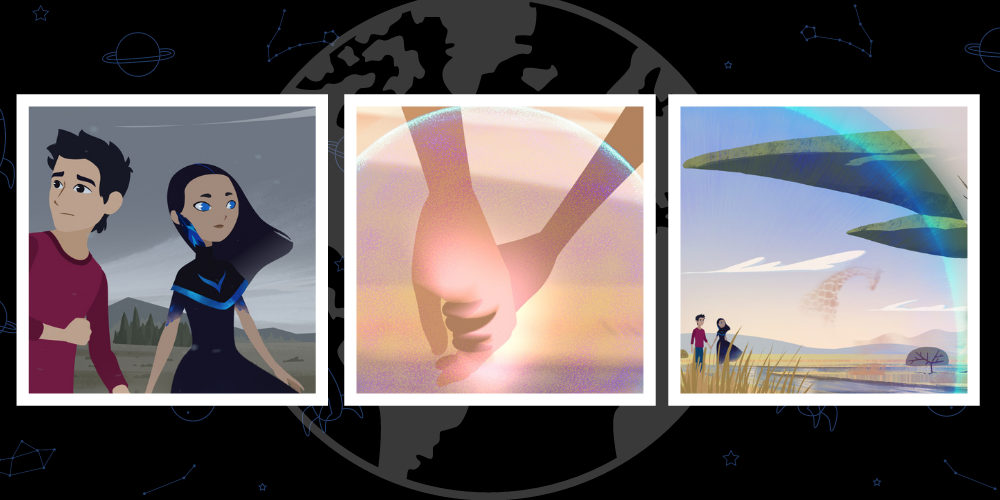This month on the Planet Classroom Network YouTube channel, audiences can screen The Letter. This moving short film is dedicated by its director to the children of migrants, many of whom can only communicate with their parents by writing letters.
The film focuses on two sisters who live in a village with their elderly grandmother. Their mother has traveled to another country to earn higher wages to support them. Through letters, mother and daughters share their love as they mourn each other’s absence. Without their parent, the bond of these sisters grows stronger as they too, learn how to run and maintain the household.
The Letter was awarded the Best Film Award (14 to 15 years category) at the Make Cinema student filmmaking competition as part of the International Kids Film Festival, the world’s largest children’s film festival.
The Global Search for Education is pleased to welcome the film’s director, Alina Koshmatova.
Alina, welcome. First tell us, how are you doing and how has COVID19 impacted life in Kyrgystan?
COVID-19 has brought very significant changes to our lives, and we all have learned an important lesson for ourselves. When the schools closed, I thought that finally, I would have more opportunity to do my favorite things. However, that was not the case. After watching and reading more and more about Coronavirus, it became scary. It became scary for all people for their health and their lives. My country’s government wasn’t prepared for such a difficult change. Young volunteers started to provide help to the doctors and they saved the lives of many people in my city. We lost a lot of strong, talented and wonderful people due to the pandemic, which is very sad. It means that all of us should continue fighting and protecting ourselves and our loved ones.
Well said. Let’s speak about your film, The Letter. Can you please talk about the inspiration for this story?
To create this story, I was inspired by the tragic incident that happened in a printing house in Moscow in 2016, where women from Kyrgyzstan were killed in a fire. Based on this, I invented a story about the children of one of those women and showed how they lived in their homeland without their mother. In our country, you can often meet children whose parents go abroad to earn a living. This topic really touched me. I put myself in the shoes of these children and created a short film dedicated to the children of migrants. I was also inspired by the Kyrgyzstan nature, my actors, and Kyrgyzstan music.
Why would a mother leave her children and her family to work in a foreign country?
Family is above all for the Kyrgyzstan nation. Family relationships are very strong. Parents have to be separated from their children only in extremely exceptional cases. In my country, the unemployment rate is very high. Salaries are low. Many people cannot find a proper job. Thus, they have to work in another country to provide their children with clothing and food.
Despite the separation, there is clearly a strong bond between the family.
In my film, I wanted to show the love and care between mother and child. Despite the fact that they have been apart for so long, they support each other in letters. Household chores fall on the shoulders of the eldest daughter; but even then, the sisters support each other in joy and sadness.
I particularly liked the way you used close ups in your film.
I like to take close-ups of people because in this way, in my opinion, you can read more and more emotion. My lens is designed just for portraits, and the whole film was shot with it. The emotions of the main character were supposed to convey all the pain of losing her mother as well as the happiness of the young sister’s support.
How are young people in your community responding to climate change and protecting our planet for the future?
Young people are now all concerned about conserving the natural resources of our planet because this is our future. All of us must protect our nature. By doing small things we can reach significant results. Nowadays, a lot of us carry shoppers without using plastic bags, we dress in thrift stores, volunteer in parks, and protect animals. In Kyrgystan, there are organizations called the Snow Leopard Trust and the Snow Leopard Foundation, which are engaged in the protection and conservation of the snow leopard. The snow leopard is one of the most popular animals in the Red Book of Kyrgystan. There are only about 300 of them left. To draw people’s attention to the rescue of a unique animal, there are actions, flash mobs, and events held annually.
Are you planning to continue to make films? What are the kinds of stories you would like to tell?
I will definitely continue to make films! Through my films, I want to convey all my experiences, emotions and feelings to inspire more people. I am currently working on a music video about female friendship and sisterhood with a local talented singer. Ideas and inspiration come suddenly and I take every opportunity to bring them to life through films.
Thank you Alina.
C.M. Rubin and Alina Koshmatova
This month on the Planet Classroom Network YouTube channel, audiences can screen The Letter. The Letter is curated for the Planet Classroom Network by LXL Ideas.







Recent Comments